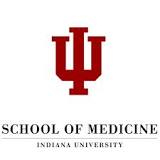OT-58 as an Enzyme Replacement Therapy for Patients With Cystathionine Beta-Synthase Deficient Homocystinuria (CBSDH)
| Status: | Recruiting |
|---|---|
| Conditions: | Hematology |
| Therapuetic Areas: | Hematology |
| Healthy: | No |
| Age Range: | 12 - 65 |
| Updated: | 2/10/2019 |
| Start Date: | January 22, 2019 |
| End Date: | June 2020 |
| Contact: | Anne Kuan |
| Email: | anne.kuan@neovii.com |
| Phone: | +1 781 966 3832 |
A Double Blind, Randomized, Placebo-controlled, Phase 1/2 Study to Assess the Safety, Tolerability, Pharmacokinetics, Pharmacodynamics, and Effects on Clinical Outcomes of OT-58, Administered Subcutaneously in Patients With Cystathionine Beta-Synthase Deficient Homocystinuria (CBSDH).
Cystathionine Beta-Synthase (CBS) Deficient Homocystinuria (CBSDH) is a rare
autosomal-recessive metabolic condition characterized by an excess of homocysteine (Hcy) in
the plasma, tissues and urine. It is due to reduced or absent activity of the Cystathionine
Beta-Synthase (CBS) enzyme, and is also known as classical homocystinuria. The symptoms
associated with CBSDH are variable in severity and time of onset across patients. Some
affected individuals may have mild signs of the disorder; others may have multi-systemic
involvement including potentially life-threatening complications. CBSDH can affect many
different organ systems of the body; the four most commonly involved are the eyes, central
nervous system, skeleton, and the vascular system.
The current approaches to treatment of CBSDH patients include a highly restrictive diet and
use of dietary supplements. Lifetime compliance with this diet is poor. OT-58 represents a
novel therapeutic approach that incorporates the use of a modified version of the native,
human CBS (hCBS) enzyme. The goal of treatment is to introduce the CBS enzyme into
circulation, resulting in reduced Hcy levels, increased cystathionine levels and normalized
cysteine (Cys) levels.
autosomal-recessive metabolic condition characterized by an excess of homocysteine (Hcy) in
the plasma, tissues and urine. It is due to reduced or absent activity of the Cystathionine
Beta-Synthase (CBS) enzyme, and is also known as classical homocystinuria. The symptoms
associated with CBSDH are variable in severity and time of onset across patients. Some
affected individuals may have mild signs of the disorder; others may have multi-systemic
involvement including potentially life-threatening complications. CBSDH can affect many
different organ systems of the body; the four most commonly involved are the eyes, central
nervous system, skeleton, and the vascular system.
The current approaches to treatment of CBSDH patients include a highly restrictive diet and
use of dietary supplements. Lifetime compliance with this diet is poor. OT-58 represents a
novel therapeutic approach that incorporates the use of a modified version of the native,
human CBS (hCBS) enzyme. The goal of treatment is to introduce the CBS enzyme into
circulation, resulting in reduced Hcy levels, increased cystathionine levels and normalized
cysteine (Cys) levels.
Inclusion Criteria:
- Confirmed diagnosis of CBSDH based on genetic confirmation and plasma tHcy ≥80
micromoles
- Willing and able to provide written, signed informed consent and to comply with all
study related procedures
- Females of child-bearing potential must have a negative pregnancy test at screening
and be willing to have additional pregnancy tests during the study
- Sexually active patients must be willing to use acceptable method of contraception
while on the study and for 4 weeks after the end of study
- Willing to maintain a stable diet with no significant modifications while on study
- In generally good health, except for possible complications of CBSDH.
Exclusion Criteria:
- Use of any investigational product or investigational medical device within 30 days
prior to Screening, or while on study
- Use or planned use of any injectable drugs containing PEG including
medroxyprogesterone (e.g. Depo-Provera) injection within 3 months prior to Screening
and while on study
- Known hypersensitivity to PEG-containing product or any components of OT-58
- A positive test for HIV antibody, hepatitis B surface antigen, or hepatitis C antibody
- A history of organ transplantation, chronic immunosuppressive therapy, or substance
abuse
- Pregnant or breastfeeding at Screening or planning to become pregnant (self or
partner) or to breastfeed at any time during the study
- Concurrent disease or condition or planned major surgery that would interfere with
study participation or safety in the opinion of the investigator.
We found this trial at
4
sites
340 W 10th St #6200
Indianapolis, Indiana 46202
Indianapolis, Indiana 46202
(317) 274-3772

Indiana University School of Medicine With more than 2,000 students in 2013, the Indiana University...
Click here to add this to my saved trials
Children's Hospital of Philadelphia Since its start in 1855 as the nation's first hospital devoted...
Click here to add this to my saved trials
Children's Hospital Colorado At Children's Hospital Colorado, we see more, treat more and heal more...
Click here to add this to my saved trials
Boston Children's Hospital Boston Children's Hospital is a 395-bed comprehensive center for pediatric health care....
Click here to add this to my saved trials


